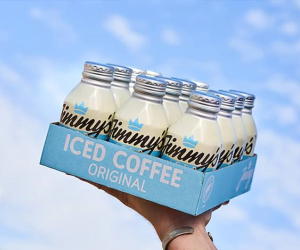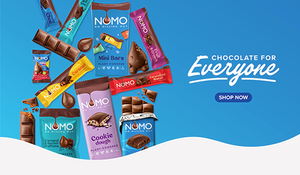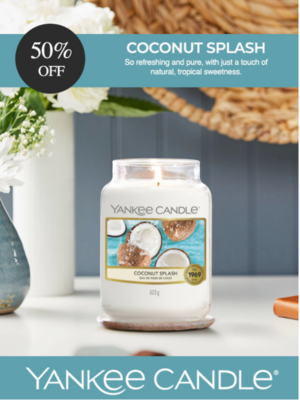Craft guilt-free ice cream with natural sweeteners in your homemade ice cream. Discover taste and health in every scoop!
When we enjoy frozen treats, or in fact any dessert, we often face a dilemma between rich, creamy flavours and staying healthy.
Ice cream tends to be very sweet, but as we become more health-conscious, we look for ways to enjoy delicious treats without sacrificing our well-being. Natural sweeteners offer a solution that combines great taste with health benefits.
In this article, we’ll explore how these alternatives can enhance your homemade ice cream. We’ll show you how natural sweeteners can change your enjoyment of ice cream, giving you tasty and healthy frozen treats.
Join us as we learn about guilt-free, flavourful and in many instances, delicious homemade ice cream!
Satisfying Your Sweet Tooth Naturally.
These days, many of our foods contain processed sugars and artificial flavours. While the idea of healthier ice cream might seem out of reach, however, we can consider natural sweeteners as a better, healthier option.
As we seek to balance flavour and health in homemade ice cream, we’ll share with you information about natural sweeteners and how they can make delicious treats without harming your health.
We’ll look at three natural sweeteners: honey, maple syrup, and agave nectar. Each has its unique taste, flavour profile and nutritional benefits that can sweeten your ice cream without the impact of sugar.
Let’s get to know these natural sweeteners as we aim for guilt-free indulgence in our ice cream creations!
It’s all about making your ice cream taste great and keeping you feeling good with every bite!
Natural Sweeteners in Your Homemade Ice Cream: Nature’s Bounty of Sweetness.
We all want delicious ice cream or dessert that’s good for us, but often the two do not go hand-in-hand.
Natural sweeteners are the key. “Balancing Flavour and Health: Natural Sweeteners and Homemade Ice Cream” isn’t just a title; it’s a desire to discover ways to achieve tasty and at the same time, healthy options.
As we explore further, we’ll not only learn how these sweeteners make our ice cream better from a health aspect but also understand the science behind their deliciousness.
Nature’s Liquid Gold: The Sweetness and Health Benefits of Honey.
Honey, a golden elixir gifted to us by bees, not only delights our taste buds but also boasts numerous health benefits.
 Its complex flavour profile ranges from floral and fruity to earthy and woody, making it a versatile addition to various recipes.
Its complex flavour profile ranges from floral and fruity to earthy and woody, making it a versatile addition to various recipes.
Beyond its rich, sweet taste, honey offers an array of health benefits, making it more than just a sweet treat.
Here are some of its advantages:
- Natural Energy Source: Honey provides a quick energy boost due to its natural sugars, particularly glucose and fructose.
- Antioxidant Properties: Rich in antioxidants, honey helps combat oxidative stress and supports overall health.
- Sore Throat Relief: Its soothing properties can alleviate a sore throat and cough when mixed with warm water or herbal tea.
- Wound Healing: Honey’s antibacterial properties make it effective in wound healing and preventing infection.
- Digestive Aid: It aids in digestion and can soothe digestive discomfort when consumed in moderation.
- Cough Suppressant: Honey can act as a natural cough suppressant, especially when combined with lemon.
- Skin Health: Applied topically, honey can moisturize and promote healthy skin due to its antimicrobial properties.
- Allergy Alleviation: Some believe that local honey may help reduce allergies by exposing the immune system to local pollen.
- Improved Sleep: The natural sugars in honey can promote a restful night’s sleep when consumed before bedtime.
- Weight Management: In moderation, honey can be a healthier alternative to refined sugars and support weight management.
Did you know? Honey has been used for centuries as a natural remedy for minor burns and wounds.
- Its antibacterial and anti-inflammatory properties can help soothe and heal burns, preventing infection and reducing pain. Applying honey to a minor burn and covering it with a sterile dressing can promote faster healing and prevent blisters from forming. Honey can be a useful addition to your home first aid kit for addressing minor burns and wounds. Naturally for severe burns, it’s essential to seek immediate medical attention.
Remember to use honey in moderation, as it still contains sugars, albeit naturally occurring sugars. While honey offers these benefits, excessive consumption can contribute to health issues.
Liquid Gold from Maple Trees: The Origins and Versatility of Maple Syrup.
Maple Syrup, often referred to as “liquid gold,” is a natural sweetener with a rich history originating in North America and Canada. It is crafted from the sap of sugar maple trees, a process that’s been practised by Indigenous peoples for centuries.
 This amber-hued delight isn’t just for pancakes; it’s a versatile sweetener used in a wide range of culinary creations. From drizzling over breakfast waffles to incorporating marinades and salad dressings, maple syrup adds a distinctive, rich sweetness to dishes both sweet and savoury. Its unique flavour profile is a testament to the beauty of nature’s bounty.
This amber-hued delight isn’t just for pancakes; it’s a versatile sweetener used in a wide range of culinary creations. From drizzling over breakfast waffles to incorporating marinades and salad dressings, maple syrup adds a distinctive, rich sweetness to dishes both sweet and savoury. Its unique flavour profile is a testament to the beauty of nature’s bounty.
Here are some health benefits associated with maple syrup:
- Natural Sweetener: Maple syrup is a natural alternative to refined sugars, making it a better option for those looking to reduce their sugar intake.
- Rich in Antioxidants: It contains antioxidants like polyphenols, which help protect your cells from damage caused by free radicals.
- Mineral Content: It provides essential minerals like manganese and zinc, which play roles in immune support, wound healing, and maintaining healthy bones.
- Anti-Inflammatory Properties: Some studies suggest that maple syrup may have anti-inflammatory effects, which could benefit overall health.
- Energy Boost: It serves as a source of quick energy due to its high carbohydrate content, making it a popular choice for athletes and hikers.
- Skin Health: When applied topically, maple syrup can help soothe and moisturize the skin.
- Digestive Health: It contains prebiotics, which support the growth of beneficial gut bacteria, promoting good digestive health.
- Heart Health: While it’s not a miracle cure, replacing refined sugars with maple syrup in moderation may be a heart-friendlier choice.
Remember, moderation is key when consuming maple syrup, as it’s still a source of calories and carbohydrates.
Agave Nectar: Nature’s Sweet Elixir.
Agave nectar, often called “agave syrup,” originates from the succulent agave plant, which is primarily found in the arid regions of Mexico and the southwestern United States.
Origins of Agave Nectar: A Gift from the Agave Plant.
 For centuries, indigenous peoples of these areas have harvested the agave plant’s sweet sap, or “aguamiel,” as a natural sweetener.
For centuries, indigenous peoples of these areas have harvested the agave plant’s sweet sap, or “aguamiel,” as a natural sweetener.
The process involves extracting the sap, which is then filtered, heated, and concentrated to create the syrup-like nectar we know today.
This amber-coloured syrup has gained popularity as a healthier alternative to refined sugars due to its lower glycemic index, making it a suitable choice for those monitoring their blood sugar levels.
Beyond its sweetening properties, agave nectar is treasured for its versatility in culinary applications. Its mild, neutral flavour makes it an excellent substitute for sugar in a wide range of recipes, from beverages and desserts to salad dressings and marinades.
Health Benefits of Agave Nectar:
- Lower Glycemic Index: Agave nectar has a lower glycemic index compared to traditional sugars, which means it can help regulate blood sugar levels. This quality makes it a preferred sweetener for individuals with diabetes or those aiming to control their sugar intake.
- Natural Sweetness: It is significantly sweeter than sugar, so you can use less of it to achieve the same level of sweetness, reducing overall caloric intake.
- Vegan-Friendly: Agave nectar is a vegan sweetener since it is plant-based and does not involve the use of animal products.
- Fructose Content: It contains a high percentage of fructose, a natural sugar found in fruits, which is often considered a healthier option compared to glucose-based sweeteners.
- Versatility: Due to its mild, neutral flavour, agave nectar can be easily incorporated into various dishes, from beverages and desserts to salad dressings and marinades.
- Nutrient Content: While agave nectar is still a sweetener and should be consumed in moderation, it does contain trace amounts of essential nutrients such as potassium, calcium, and magnesium.
Remember that, like any sweetener, agave nectar should be used in moderation to maintain a balanced diet and avoid excessive sugar intake.
The Natural Sweetness with Added Health Benefits.
Nature has provided us with a trio of remarkable natural sweeteners: honey, maple syrup, and agave nectar. These golden elixirs offer far more than just sweetness; they come with a host of health benefits and distinct flavour profiles.
- Honey, with its diverse range of floral sources, adds complexity to dishes. It’s not just a sweetener; it’s an embodiment of the local flora and its nutritional goodness.
- Maple syrup, lovingly harvested from the maple tree’s sap, carries with it the essence of wooded forests. Its rich, amber hue and layered flavour create a sensory journey in every bite.
- Agave nectar, collected from the heart of the succulent agave plant, is like a blank canvas for flavours, elevating both sweet and savoury recipes with its gentle, honey-like sweetness.
These natural sweeteners do more than just replace sugar; they enhance our culinary experiences and promote a healthier way of life, one sweet drop at a time.
By choosing these natural sweeteners over refined sugars, we not only satisfy our sweet cravings but also support our overall well-being. Each of these options provides a healthier, more nutrient-rich alternative to processed sugars, giving us the opportunity to balance flavour and health by using natural sweeteners in our day-to-day lives, making them an excellent addition to any conscious eater’s pantry.
So, whether you’re drizzling honey on your morning toast, indulging in the rich flavour of maple syrup, or opting for the mild sweetness of agave nectar, you’re not only enjoying delicious flavours but also adopting a sweeter and healthier way of life.
We hope that you have enjoyed reading about these natural sweeteners that nature has gifted us and hopefully, you will look out for these and consider using them more in your day-to-day diets, not least your homemade ice cream creations.
Take a look at our Lavender and Honey Homemade Ice Cream or our Bacon and Maple Syrup Homemade Ice Cream to see ways you can consider incorporating these gifts from nature.






































Excellent piece about finding the right equilibrium between taste and wellness in homemade ice cream! Achieving that delicate harmony between indulgence and health can be quite a puzzle, and your perspective on incorporating natural sweeteners is greatly valued.
I’ve recently been exploring the incorporation of honey and maple syrup into my ice cream concoctions. However, I’m intrigued to learn if there are alternative natural sweeteners you might suggest? Do specific sweeteners complement particular ice cream flavors exceptionally well?
Hey Kiersti,
Thanks for your comment. Glad you enjoyed our article. It’s often believed that sweet treats are off the menu for those monitoring their weight or others with health issues, so we wanted to show that with a little tweaking homemade ice cream can still be on the menu, just a case of being mindful.
Wonderful to read that you’ve been experimenting with alternative sweeteners, even more so in your ice cream concoctions!
Yes, there are other sweeteners you could try over and above Honey and Maple Syrup, such as Agave Nectar and of course, these all add their own flavour profile, which in some cases does complement the end result.
There are also a couple of other alternative sweeteners – Stevia and Erythritol, both derived from natural sources, which are gaining popularity. We’ve highlighted both of these in our post – Diabetes and Ice Cream: Making a Healthier Choice – to show that even when you have to watch your blood sugars, ‘sweet’ treats remain achievable (in moderation).
Hope this information helps and keep up with the Ice Cream concoction-making!
Thanks for your input again,
All the best
Cherie :o)